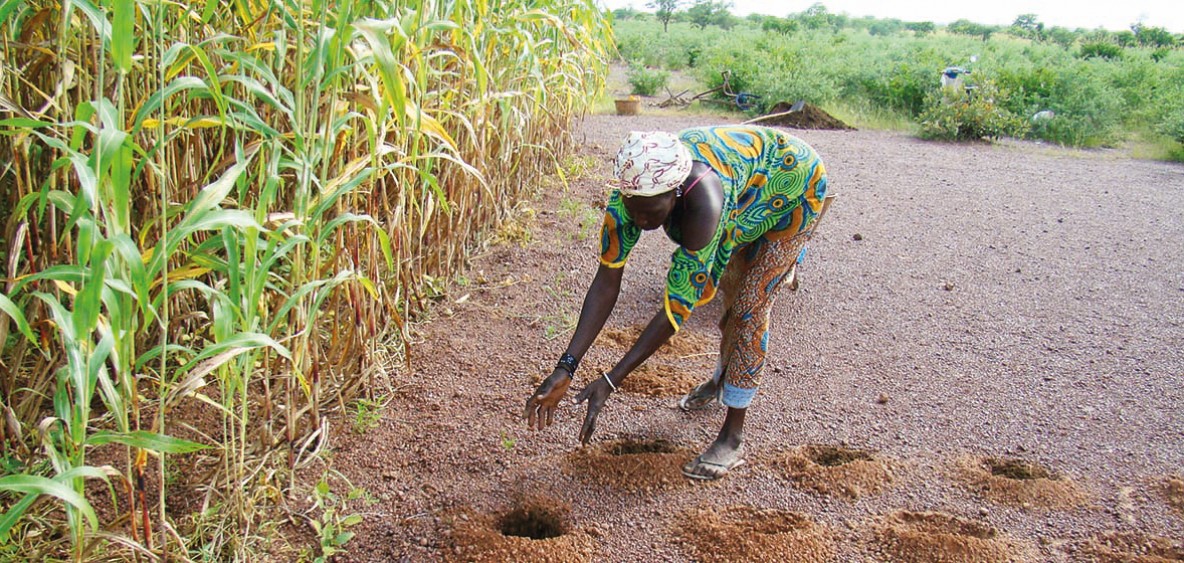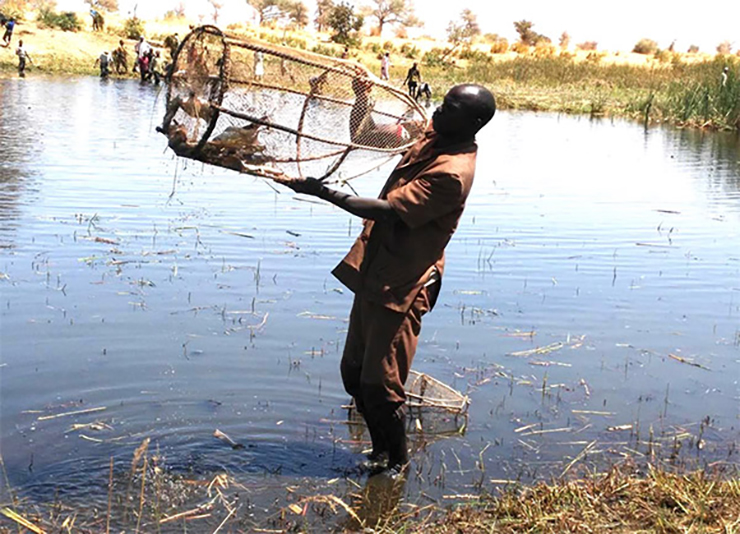
The RFS project in Niger is promoting a holistic and integrated approach to agricultural production that focuses on strengthening sustainable family farming and improving market access for family farms.
Niger is a country highly vulnerable to climate change—more than 80 percent of Niger’s population relies on smallholder agriculture for food and income. Climate variability, amplified by the effects of climate change, threatens agricultural production potential, impacting soil fertility, soil quality and water availability. The most productive regions in Niger, Tahoua, Maradi and Zinder, are also the most affected by wind and water erosion, leading to siltation of watersheds, deforestation and declining groundwater levels. Ultimately, these conditions render Niger’s rural poor extremely vulnerable to food and nutrition insecurity, with few means to diversify livelihoods away from subsistence agriculture and improve household incomes.
It is within this context that the Resilient Food Systems project in Niger, the Family Farming Development Programme (ProDAF), is promoting a holistic and integrated approach to agricultural production. Jointly implemented by the International Fund for Agricultural Development (IFAD) and the Government of Niger, the project focuses on two key outcomes: (1) strengthen sustainable family farming; and (2) improve market access for family farms. The project’s holistic approach works to combat the main drivers of environmental degradation while facilitating sustainable access to natural resources and local markets in order to ensure the long-term food and nutritional security of 290,000 households in Maradi, Tahoua, and Zinder.

To date, the project has restored 10,491 ha of degraded land, increased household income by 70,000 CFA francs per year, and enhanced biodiversity through the introduction of new varieties of tree and animal species. Each intervention contributes to priority development strategies defined by the Government of Niger through its Nigeriens Feed Nigeriens (3N) initiative and the Economic and Social Development Plan (PDES) 2017-2021.
In working toward these outcomes, the RFS Niger country project team has learned several key lessons that are applicable across all RFS country projects.
To learn more about RFS Niger and lessons learned from the project, download the country factsheet and RFS Niger’s COP14 presentation.
Subscribe to our monthly newsletter to receive updates on stories directly from the field across all our projects, upcoming events, new resources, and more.